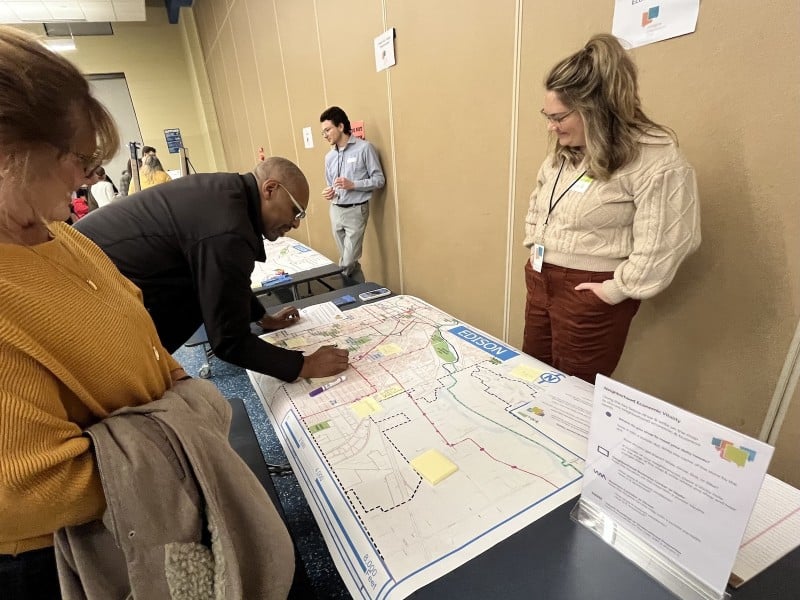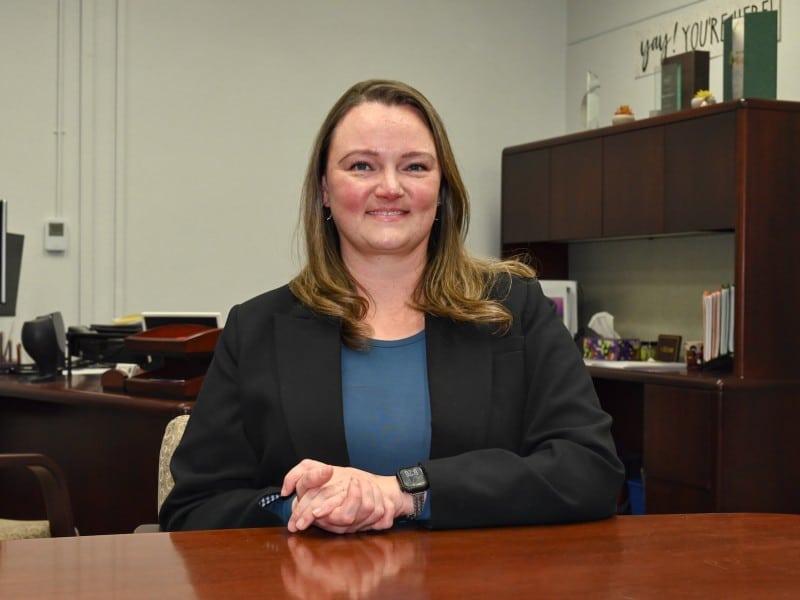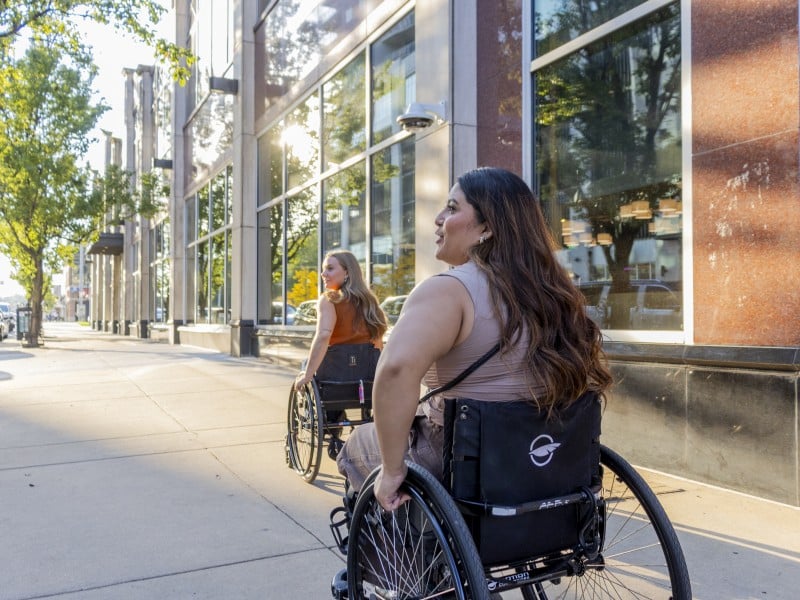
What are young voters’ concerns? KalaSalon hosts Young Adult Voters Panel to find out
Local organization KalaSalon invited young adults from the area to answer questions about their views on the upcoming 2024 elections.
Editor’s Note: This story is part of Southwest Michigan Second Wave’s Voices of Youth Kalamazoo which is in partnership with the Greater Kalamazoo YMCA, KydNetwork, and supported by the Stryker Johnston Foundation and the Michigan After School Partnership. This series features stories created by Kalamazoo County youth in partnership with professional mentors, as well as feature stories by adult writers that examine issues of importance to local youth.
KALAMAZOO, MI — In a side room of Rugger’s Up and Under a group of young adults gathered on a Thursday evening to share their thoughts on the upcoming elections. Dubbed “Under 30 & Up in the Air,” the audience consisted mostly of older, white individuals, no doubt curious about the younger generation’s thoughts on the 2024 elections.
The event was presented by KalaSalon, an organization founded by Cathie Schau in 2015 that hosts and sponsors community conversations. The discussion consisted of six young adult panelists, each representing aspects of public life. While all the presenters leaned left politically, this did not stop lively discussion from occurring.
When asked if having representation from one side of the political spectrum was intentional, Schau responded that the selection process was a combination of people who she has worked with before as well as those who responded to her emails.
Panelists included:
Charles Connor, a regional organizing director at multiple college campuses, including Western Michigan, Grand Valley State, and Wayne State, along with other institutions
Aurora Sanchez, a Kalamazoo County Democratic Party volunteer working out of the party’s national office in Kalamazoo
Sarah “Holly Wood” Karsten, a content creator and ravewear influencer involved in the local electronic music scene, who also happens to work in insurance
Austin Marsman, a 24-year-old candidate for state representative of the 42nd District
Samad Nadeem, a community organizer and activist who has participated in several campaigns, most notably fighting U.S. Immigration and Customs Enforcement on behalf of their mother
Damaris Potter, the Western Michigan University College Democrats Sustainability chair as well as a voter registration volunteer
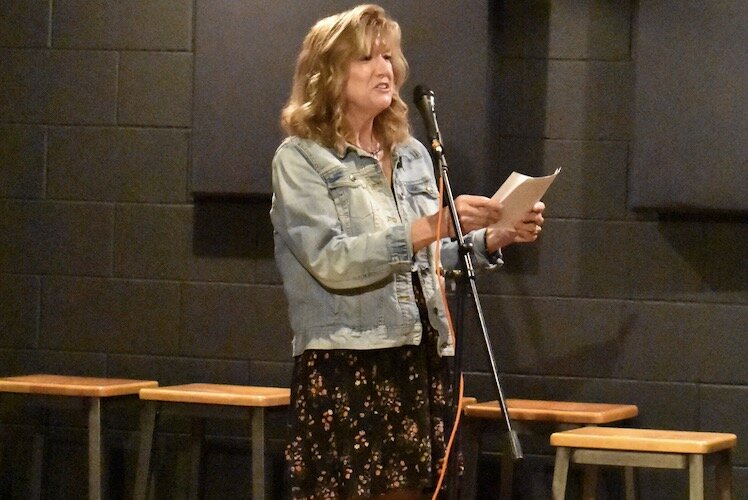
The founder of KalaSalon, Cathie Schau, asked the first question:
“How are you feeling about the state of democracy, threats to democracy itself, and the integrity of the election?”
Potter expressed worry about how the election “will be handled in local municipalities,” adding that “we had a president in the past that made it almost normal to question democracy… question these volunteers.”
Nadeem went further, asserting “that democracy is in jeopardy in this country,” citing the elections of Presidents George Bush and Donald Trump, both of whom won elections without winning the popular vote.
Candidate Marsman referred to his opponent, current District 42 Representative Matt Hall, who has claimed that the 2020 election was invalid. Marsman asserted that “we have to start by telling folks that their vote matters” and try to rid the “my vote doesn’t matter” mindset.
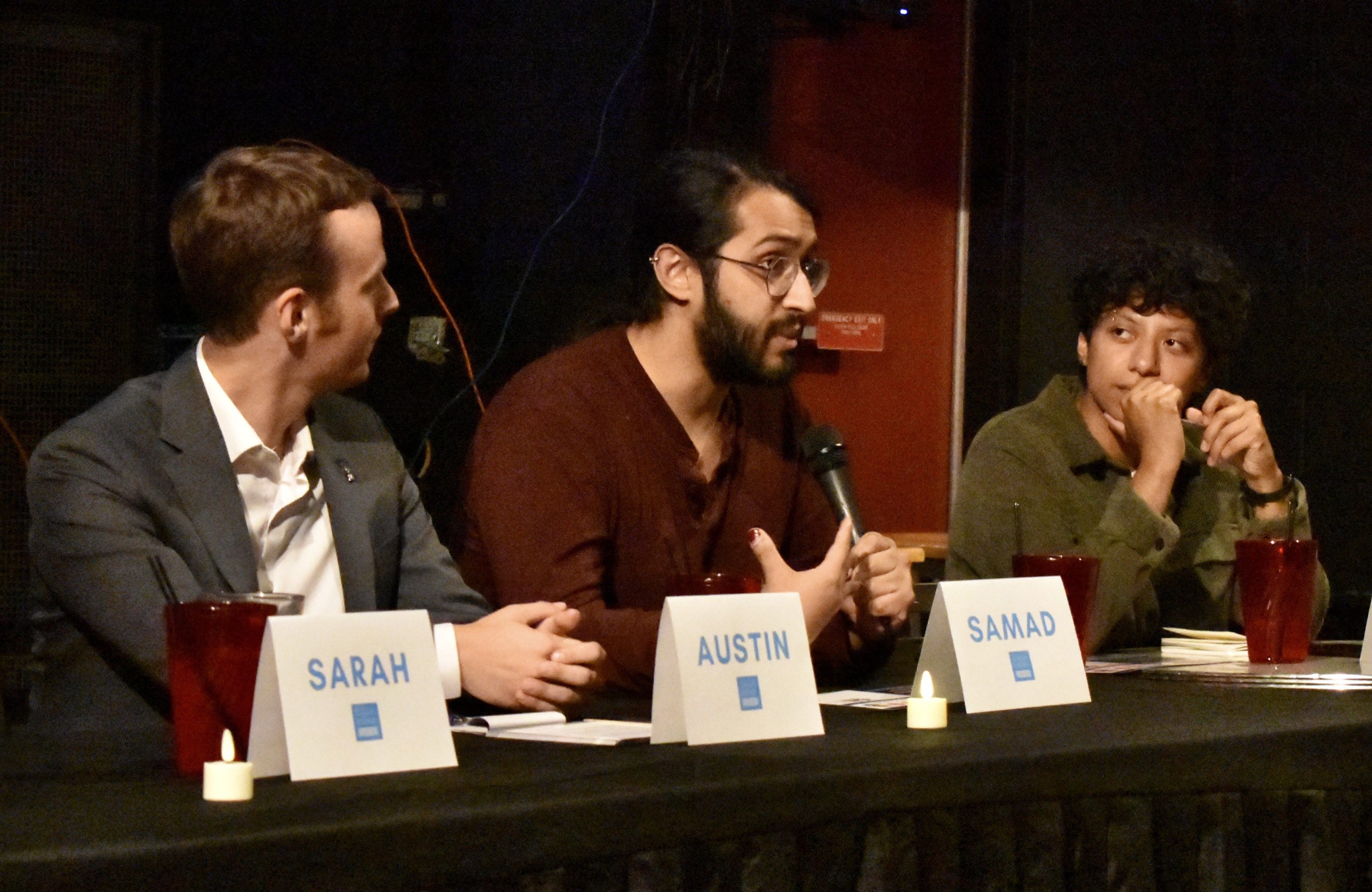
Panelists at the recent KalaSalon which focused on concerns of young voters.
Karsten says they “feel pretty secure” and trust in the integrity of the workers when it comes to election security. Her concern, she says, comes with young adults’ apathy towards voting, with some of her friends wondering what’s the point. To address this apathy, Karsten says she uses a sports metaphor, comparing the US’s election model to a sport. “You may not like the rules of the game,” she quips, “but rules can be amended” and “you’re either in it or you’re not.” She also says her belief in the underestimated power of the young adult vote.
This sentiment was echoed by Sanchez, who says he worked as a poll worker in Wisconsin in 2020, describing the excitement of seeing “moms and dads come in with their kids and be like we’re voting as a family today.” She stressed that “getting people excited for the future is something that is very important to our generation.”
Connor says he champions the integrity of the election clerks and officers, calling the jobs “labors of love for democracy.” He notes that on college campuses, he has seen that “we’re not running against Republicans — we’re running against apathy,” adding, “We’re running against a perceived lack of external efficacy.” To combat this, Connor expressed the need to “cut through the nonsense” and have “authentic conversations.”
One question was posited by an audience member who asked something along the lines of:
“How energized is your generation towards voting and do celebrities like Taylor Swift influence electoral decisions?
Connor, who recently moved to Kalamazoo from Virginia, recalls that on his first day on the job in Michigan Biden dropped out, leaving him to ask, “Do I still have a job?” He adds that he saw people become more excited when Harris was announced and that younger people began to recognize how the election could fundamentally influence US democracy.
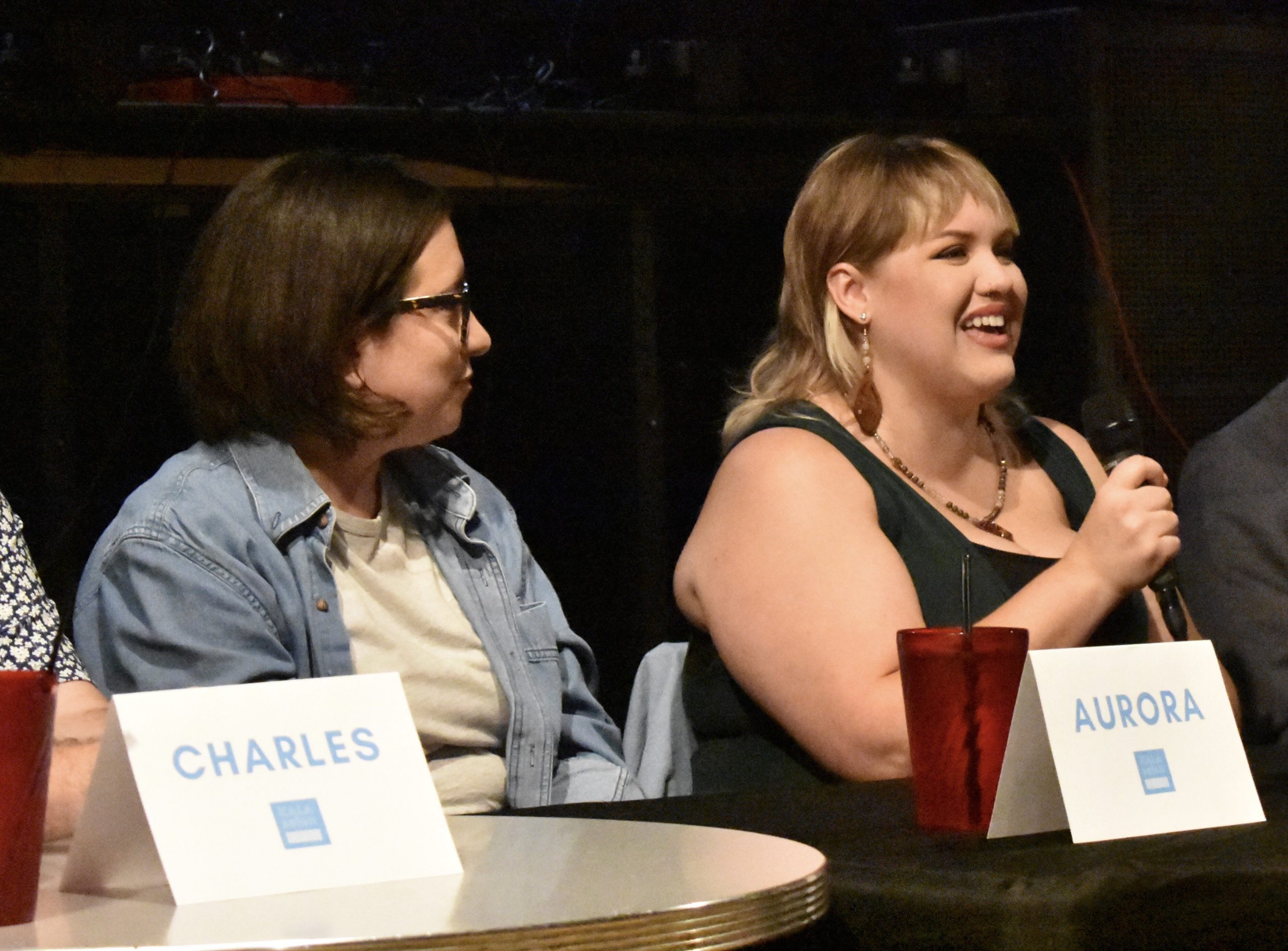
Panelists at the recent KalaSalon which focused on concerns of young voters.
Sanchez acknowledges that “we have some work to do in terms of communicating messages to younger people” and to “grow a coalition we have to invest in young people’s” concerns. When it comes to celebrity endorsements, she says that she doesn’t know if they matter to others, but personally has not seen their influence within her community. Having “genuine conversations versus yelling and screaming…will get us further,” she adds.
Karsten follows with an anecdote about her experience during the 2016 election, recalling that she “was not nice on Facebook…not nice to family members” She stresses the importance of having those conversations in person. When it comes to younger voters, Karsten believes that honest political short-form content should be geared toward them. On the topic of celebrities, she adds that she can “appreciate that Taylor Swift said something… and that she has an impact.”
Marsman spoke of his experience knocking on doors as a candidate, finding “the most effective surrogate [to be] talking to the people in your network.” He suggested texting contacts and expressing whom you’re voting because “people trust people.”
Nadeem concurred with Marsman, adding that “if your friend tells you to go vote, or if your grandmother told you to go vote…you are a lot more likely to listen to them.” However, when it came to the Democratic Party, he believes they’re “doing a really terrible job of appealing to young voters” adding that he “thinks it’s very patronizing to call it apathy.” Nadeem continued by saying, “The onus is not on me as a voter to change my political views for a candidate — that is the type of demagoguery that we saw at the RNC.” He fears that such demagoguery is brewing in the Democratic Party.
Potter says that he observed a sizable shift in mentality after Harris became the candidate. With Biden, he heard people say “I’ll go provided because he’s not Trump,” rather than actually express interest in the candidate. Potter adds that “as a young person who spends a lot of time on TikTok…that image of a candidate really matters.” With Harris, he says he recognizes that as a person of color, he likes seeing “another woman trying to step up and take that position.”
One attendee asked the panelists about their trust in government:
“How would you rate your government, both state and federal? One star being no trust, and five stars being most trust.”
Potter gave the federal government 3 stars and the state government 4. Having recently worked with a state senator, he says he has appreciation for the hard work and integrity of some local politicians. As for the federal government, Potter says he does not agree with some of Harris’s stances, such as those on fracking and her approach to the current conflict in the Middle East.
Nadeem gave the federal government 1 star, citing the low likelihood of a bill being passed even if it has widespread political support. Giving the state government 3 or 4 stars, he called upon his positive experiences working with state officials, believing “they’re legitimately doing this work because they want to make their communities a better place.”
Marsman did not assign a star rating to the federal government but did agree with Nadeem that Congressional achievements are low. With regards to state government, he did not provide a rating either but expressed that he is “really confident.”
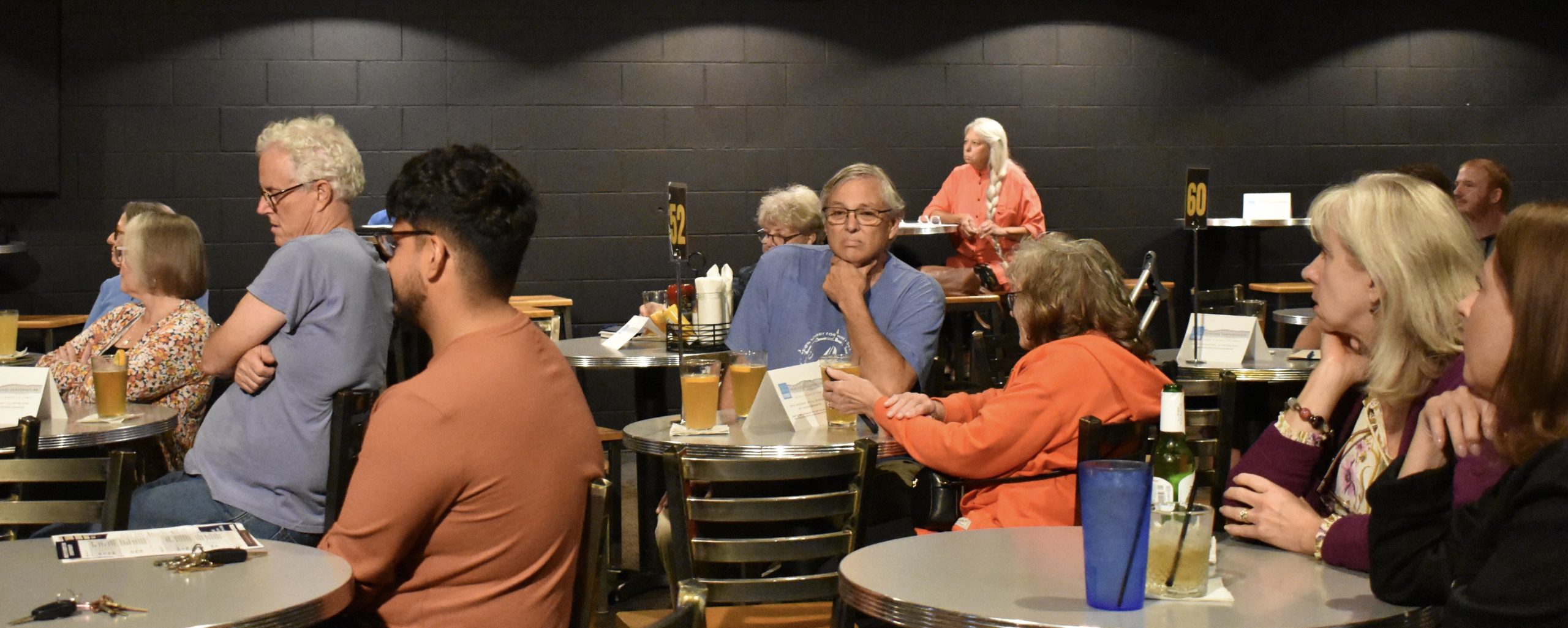
Audience members at the recent KalaSalon focusing on young voters.
Karsten gave the federal government 2 stars and the state government 4. Concerning the federal government, she noted that limited cooperation and a lack of listening from elected representatives have lowered her opinion of them. However, she lauded the state attorney general for doing “a pretty good job of looking out for consumers.”
Sanchez gave the federal government 3.5 stars, as she says she is rather vexed that elected representatives can stay in their positions for over a quarter of a century. Having recently moved from New Mexico, she appreciated the amount of women representation in our state government, giving 4 stars.
Connor did not provide a star rating but says that it comes “down to individual vendors or individual organizations, both federal and state government” and getting them to properly “serve the people.” He expressed his appreciation for several watchdog groups that provide more digestible information regarding donor relationships.
These were only three questions out of numerous that were asked by audience members. Another included how panelists might go about talking to friends or relatives who are Trump voters, with the panel agreeing that acceptance and authenticity have been the most effective ways to navigate tense political discussions.
One listener asked about the spread of misinformation, noting that the older generations have struggled to decipher which news is factual and which news is opinion or purposefully exaggerated. The panel then discussed the importance of media literacy, with some mentioning classes that they took, both in high school and in college, that gave them the tools to sift through information. There was also a discussion on how algorithms can produce misleading content.
Another question surrounded Harris’s renewed focus on her middle-class upbringing rather than her identity as a woman of color. The panel voiced a nearly unanimous understanding of her shift in focus to appeal to moderate voters but said they felt the diversity of her identity was worthy of being at the forefront of her campaign.
After about two hours, the event concluded. Near the end, an audience member expressed appreciation for the younger generation’s voice and was grateful that such a panel was held, a sentiment that was echoed by the crowd.


